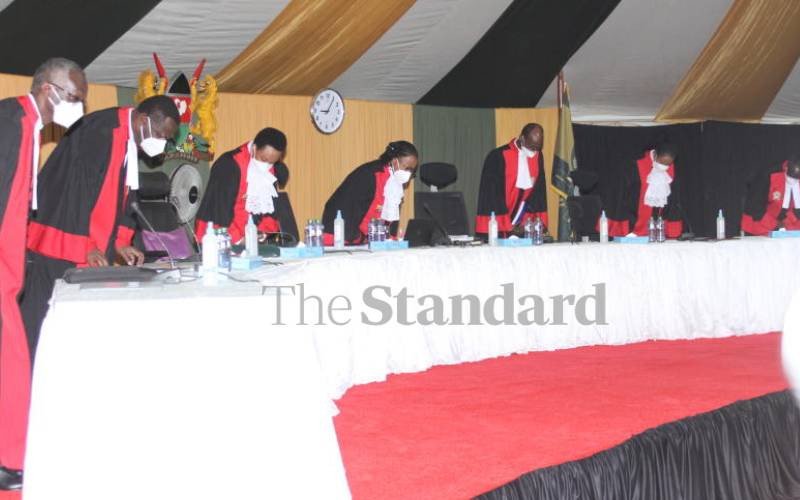×
The Standard e-Paper
Fearless, Trusted News

When architects of the 2010 Constitution made it possible to petition presidential election results at the Supreme Court, then, it appeared to be a stop-gap measure in dealing with the periodic post-election violence.
Guided by the 2007 post-election violence, they provided for article 140 that mandated the top court to hear and determine any petition challenging the election of a president-elect, if questions arise on the process and results used.